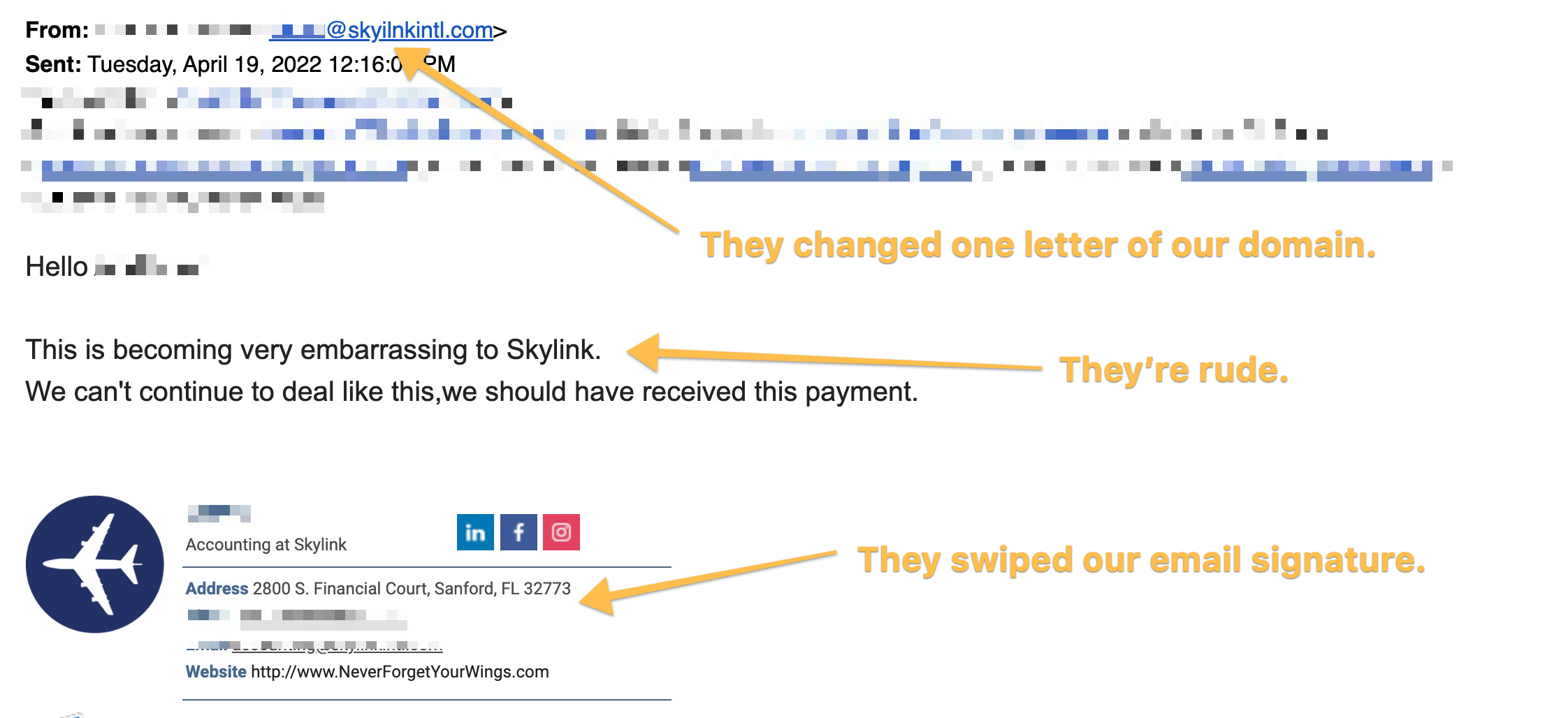Countless aircraft maintenance and supply chain teams grapple with the Herculean task of sourcing reliable aircraft parts.
7 Breakthrough Approaches Shaping The Future Of Aircraft Maintenance Inventory
Aircraft Parts and Fast Food? 6 Inventory Lessons Maintenance Operations Can Learn from McDonald's.
Did you ever think your aircraft maintenance operation might learn a thing or two from a cheeseburger?
Optimizing Procurement Processes in the Aviation Industry: Strategies for Increased Efficiency and Cost Savings
Procurement processes in the aviation industry are complex and multifaceted, involving numerous stakeholders, from suppliers to airlines to regulatory bodies.
5 Troubling Threats To Every Small Aircraft Part Repair Station
The 4 Levels of Value Different Aircraft Part Partners Deliver. Which One Best Serves You?
3 Simple Steps To Protect Your Aircraft Maintenance Operation From Email Wire Fraud Scammers
Email scammers are attacking our clients, demanding payment.
Their persistent, rude, and sneaky. They've become smarter, making emails and PDFs look like companies they're trying to imitate.
As the scammer's emails to our client went ignored, their frequency and intensity increased.
Our client became concerned and notified our Dedicated Account Manager because the emails and invoices looked exactly like ours. The only difference was one letter in the email domain.
Sneaky!
So, as a precaution, I sent out an email to all our customers, warning them of the issue. One particular customer replied and said they were recently frauded out of $6,000 through a similar situation (not from our company).
If you haven't been on high alert yet, don't wait; now is the time to get more aggressive to protect your company and clients.
Upgrade all your technology security settings.
Duh, right?
But we often get so stuck in the day-to-day, and we miss simple security settings in our technology stacks.
First, whatever platform you use, whether Google Workspace, Microsoft Teams, or any other, increase your security settings.
Sure, some good emails may get stuck in spam, but it's worth it. And when you see scammer emails, make sure to flag them as "phishing" so your software can learn about the attacks.
Then, make it a habit to regularly remind your team not to click on any links or download PDFs from people they don't know.
It's also critically important you alert your bank of any possible issues. Secure your bank accounts with better passwords and have your bank rep add access codes to all your accounts.
Warn your customers about scammers.
As a precaution, we've taken the following steps as a company:
First, we alerted all our customers that our banking details have not changed and to not pay any company requesting payment to a new bank account.
Additionally, we've put alerts on all our accounting team's email signatures and invoices:
"ALERT:
There is an increase in scammers requesting wire transfers to non-affiliated bank accounts.
Please only make wire transfers to the bank account details you have on file, as we haven't changed any of our bank account details.
All official company emails will come from an @ name.com email account."
Put your Account Payable teams on high alert.
This isn't just an issue about customer payment.
We're also the ones being targeted. Some team members get a few scammer emails a day, which end up in spam due to our email security settings requesting payment from vendors.
Notify your accounts payable teams not to make any payments from email demands to new vendor bank accounts.
They should call the vendor using the phone number stored in your ERP or accounting software to confirm payment details when in doubt.
It's also an excellent company policy for your Account Payable procedure always to have multiple controls where one team member schedules payment and your controller or CFO is the only one who can release payment.
Complaining won't solve the problem, but being smarter than the scammer will.
















